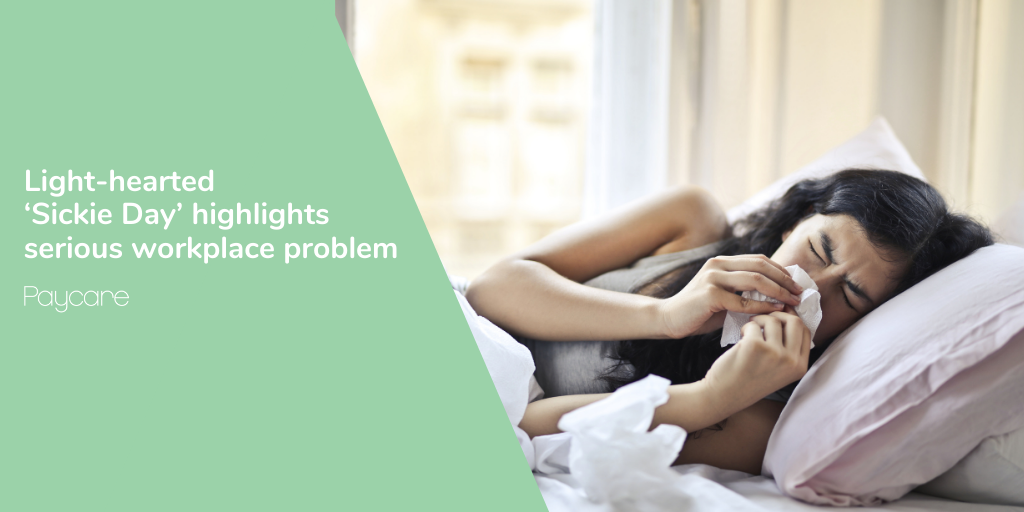Absenteeism is no joke – that’s the message from us this National Sickie Day.
The first Monday of February is established as the day when a higher number of employees call in sick than any other day of the year and some are deemed to be doing so unnecessarily because they are not really sick – hence the name of the day.
But we are calling on employers to recognise the very real problem of absenteeism.
It’s estimated absenteeism costs the UK economy £8.4 billion per year1, and it’s not yet known what impact the global pandemic will have had on absence rates.
Our CEO Kevin Rogers says:
“We have all heard stories of people calling in sick while they are actually on holiday or recovering from a night out. But there is actually a very serious side of absenteeism. Right now, there are millions of parents who are home schooling their children during the UK lockdown, and we are bound to be seeing some of them taking time off work because they simply do not have time in their day to do both.
“While they might not have a specific illness, there are also lots of people feeling a little fed up or tired during lockdown – and some may be tempted to take a day or two off to relax or break up their routine. And, while this doesn’t technically count as absenteeism, there are thousands of people who take time off work due to their mental health but will make up different symptoms when they call their manager.
“There are lots of ways organisations can help to reduce these hidden challenges, whether it’s promoting honest conversations about wellbeing, so employees feel able to disclose information to their managers; or offering greater flexibility to empower team members to work how and when they want to, as long as they get the job done.”
Policies and practices to put into place: Paycare’s top 5 tips
- Flexible working helps employees with caring responsibilities and those who are home schooling through the lockdown (and a third of workers would actually prefer more flexibility in their day than a 3% pay rise2!).
- Employee Assistance Programmes may help employees feel more positive about work after chatting confidentially about any worries they have.
- Reaching out regularly to employees working remotely is a must.
- Putting wellbeing benefits in place is proven to support employees in feeling more loyal and positive towards their workplace (and more than a third look at perks and benefits as one of the main considerations before accepting a new job3).
- Having a Workplace Wellbeing Strategy is essential when it comes to issues such as absenteeism, presenteeism and stress in the workplace.
To find out more about developing a Workplace Wellbeing Strategy to reduce issues such as absenteeism in your workplace, simply visit www.paycare.org/wellbeing-strategy-whitepaper/.
And if you need any support with employee health and wellbeing – don’t hesitate to get in touch, we’re here to help! 😊
Sources:
- https://www.centreformentalhealth.org.uk/sites/default/files/2018-09/managing_presenteeism.pdf
- https://www.hrmagazine.co.uk/article-details/34-of-employees-would-prefer-a-more-flexible-approach-to-working-hours-than-a-pay-rise
- https://www.independent.co.uk/news/business/news/google-asos-airbnb-20-best-perks-benefits-uk-employers-a6938716.html

